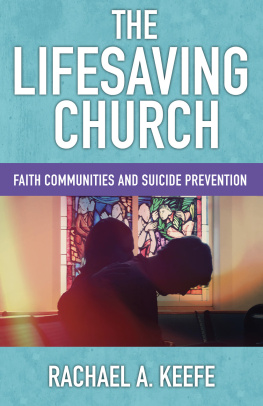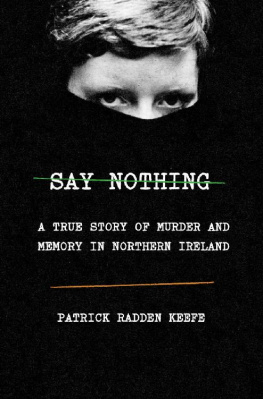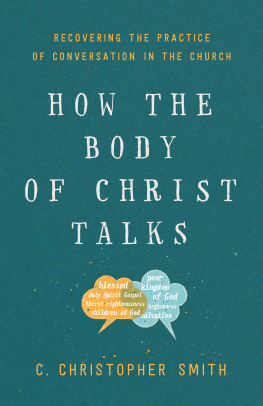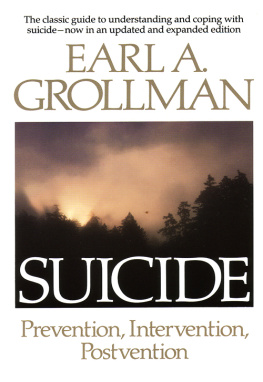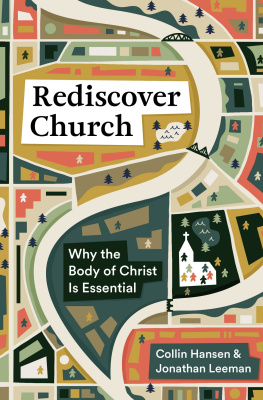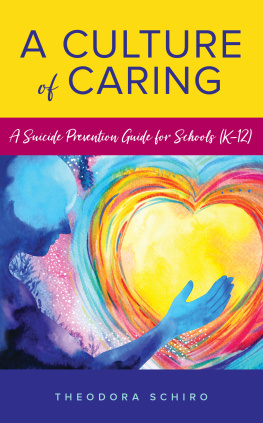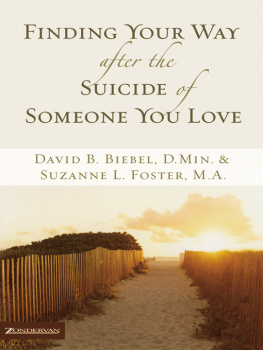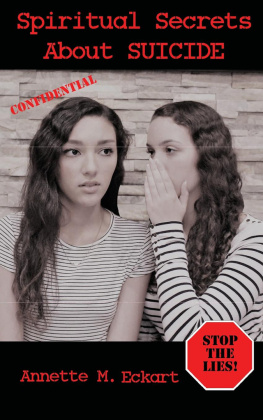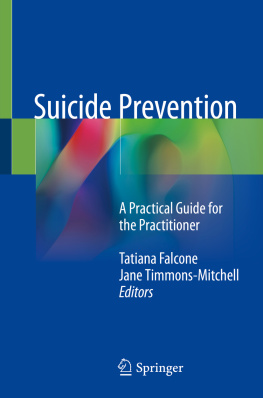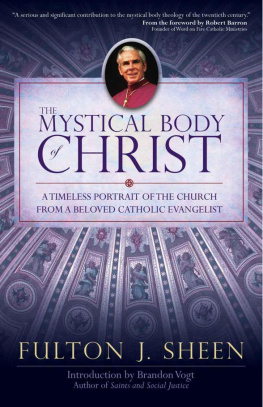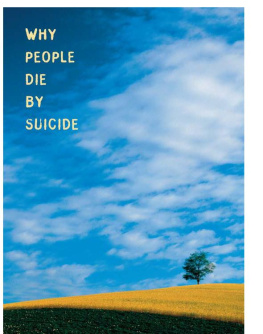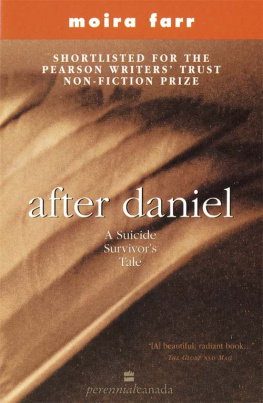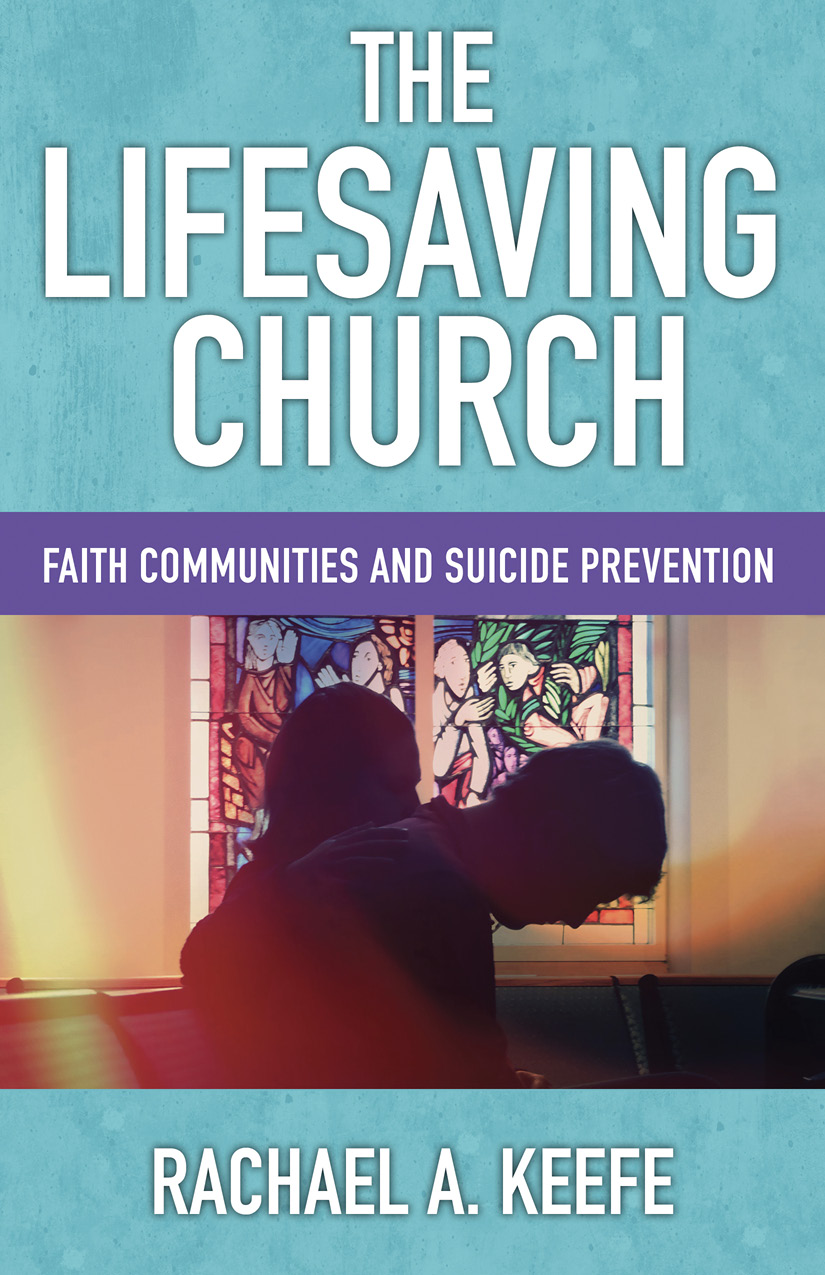Praise for The Lifesaving Church
One compelling lesson evident in Keefes unsettling memoir is that the scars of childhood bullying, abuse, and neglect linger for a lifetime. Another is that even one hospitable minister, teacher, counselor, or especially in her case an ordinary faith community, can make all the difference in rescuing and revitalizing that wounded child and child-within. In an era of relentless headlines of anxiety and despair, The Lifesaving Church arrives on the scene as a welcomeand welcomingwitness to perseverance and hope.
Robert C. Dykstra, professor, Princeton Theological Seminary
The Lifesaving Church is a powerful book about suicide prevention that every church leader needs to read. Through compelling and courageous storytelling, followed by practical steps that you can do today, this book is a guide that will help churches fulfill their mission to save lives.
Sarah Griffith Lund, First Congregational Church of Indianapolis and author of Blessed Are the Crazy
Keefe has offered us a fearless telling of her own story of struggle and hope, of pain and healing, and of betrayal and redemption. She has used her experiences of suicidal thoughts (and an attempt), a persistent eating disorder, and a deep psychache to weave a theology of the Church and its purpose of saving lives. Her story serves as both a spiritual and practical guide to congregations as they seek to be a healing and hopeful presence to all they serve, especially those struggling with suicide, addictions, and a sense of separation from God, neighbor, and self. The book includes practical suggestions as well as multiple resources in the appendices.
Christie Cozad Neuger, professor emerita, Brite Divinity School.
Keefe courageously tells her story of pain and woundedness and the miracle of transformation that she found in her faith community. This is not just her story. She provides several concrete suggestions for mental health ministry and congregational care. She offers options for preventing and responding to suicide that move beyond platitudes or clichs. She is witness to Christs promise that exposing her wounds to her faith community, the Body of Christ, will lead to redemption. Once redeemed, Keefes pain became wisdom. She has been able to use her personal flaws as tools to understand and offer healing and compassionate space to others.
David W. McMillan, clinical and community psychologist
This book weaves the power of Keefes personal story with theological and psychological wisdom. Suicidal behavior, self-harm, eating disorder, depression, and adverse (abusive and neglected) childhood experiences are realities that connect with her experience of the embodied love of God. This book breaks the silence with her honesty and the depth of her faithfulness and guides faith communities to embody the unconditional love of the divine. God is not a fan of suicide, is a wallop of grace that engages us in the conversation.
Alan Johnson, United Church of Christ Mental Health Network
Keefe offers a timely and relevant introduction to what it means to be mindful and attentive to the realities of suicide in our midst. This is an aspect of ministry that has certainly been under addressed. She shares her personal journey, which has involved suicidal realities as well as gender realities, to alert communities of faith to their critical role in responding to people who may be overlooked in their day-to-day living. Her brave revelations of her journey toward healing can be a needed inspiration to those who think they are alone in their life situations. Her voice throughout her narration is particularly powerful. She weaves personal reflections with theological insights to provide hope for those struggling with similar issues. Because she speaks from personal experience, her confession is compelling and inspiring for others who may be dealing with all too similar situations. Particularly helpful are her appendices, which give practical instruction for those dealing with issues of suicide. Her wisdom is instructive for counseling families and friends affected by suicidal relations. Also helpful are her keen insights into the faith and psychological dynamics that are a part of suicidal realities.
Sharon Thornton, professor emerita, Andover Newton Theological School and author of Broken Yet Beloved
At last, a healthy, soul-stirring resource for starting a conversation about suicide in the church! Through a courageous personal testimony, Keefe reminds us that no one is outside of Gods reach, and calls the church to return to the heart of its DNA as an institution of love and radical acceptance. Keefe proves that vulnerability and raw truth telling, coupled with professional insight and genuine unconditional love, is our only hope if we truly are to become The Lifesaving Church.
Angela Whitenhill, Mental Health Initiative manager, National Benevolent Association (Christian Church/Disciples of Christ)
Copyright
Copyright 2018 by Rachael A. Keefe.
All rights reserved. For permission to reuse content, please contact Copyright Clearance Center, 222 Rosewood Drive, Danvers, MA 01923, (978) 750-8400, www.copyright.com .
Bible quotations, unless otherwise noted, are from the New Revised Standard Version Bible, copyright 1989, Division of Christian Education of the National Council of the Churches of Christ in the United States of America. Used by permission. All rights reserved.
Cover design: Jesse Turri
Cover art: Photograph copyright 2018 by Chalice Press.
ChalicePress.com
Print ISBN: 9780827221826
EPUB: 9780827221833 EPDF: 9780827221840
Contents
Chapter 3: The Body of Christ
Is Fearful
Chapter 6: The Body of Christ
Is Brokenand Whole
Dedication
To the Rev. John Hall, without whom my story could not be told. Words are insufficient to express my gratitude for the decades of listening, caring, mentoring, and friendship that
grew out of my bleakest moments.
Acknowledgments
If you have touched my life with love and grace, Im grateful. I think of the members of the Federated Church of Hyannis back in the 1980s, teachers, professors, therapists, and friends who have shared the journey; there are no words to sufficiently express my gratitude for all of you. With a book like this one, it is impossible to thank all those who contributed in one way or another. I feel as if Id have to name everyone Ive ever known, and I would inevitably leave someone significant out. To avoid that, those listed here are people who directly participated in the writing process.
Sarah Lund, who made me realize the time had come to tell my story.
The folks of Living Table United Church of Christ, who allowed me to take a week away to begin the writing process, and offered their support in the ongoing endeavor.
The women at Holy Wisdom Monastery in Middleton, Wisconsin, for the hospitality and welcome into sacred community while I began writing.
Wendy Stoll, Timothy Thomas, and John Hall for reading the first draft and encouraging me to keep going.
All the folks at Chalice Press who made this book feel like a collaborative adventureBrad Lyons, Deborah Arca, Ulrike Guthrie, Gail Stobaugh, KJ Reynolds, and anyone else with whom I didnt have direct contact.
The United Church of Christ Mental Health Network, who encouraged me to share my knowledge and experiences in ways that led me to develop my theological approach to suicidality.

